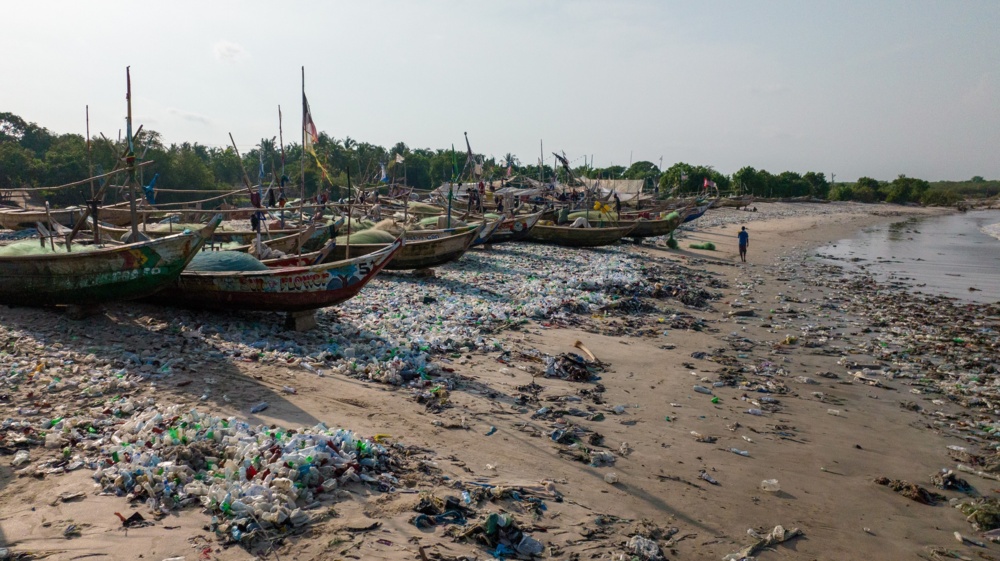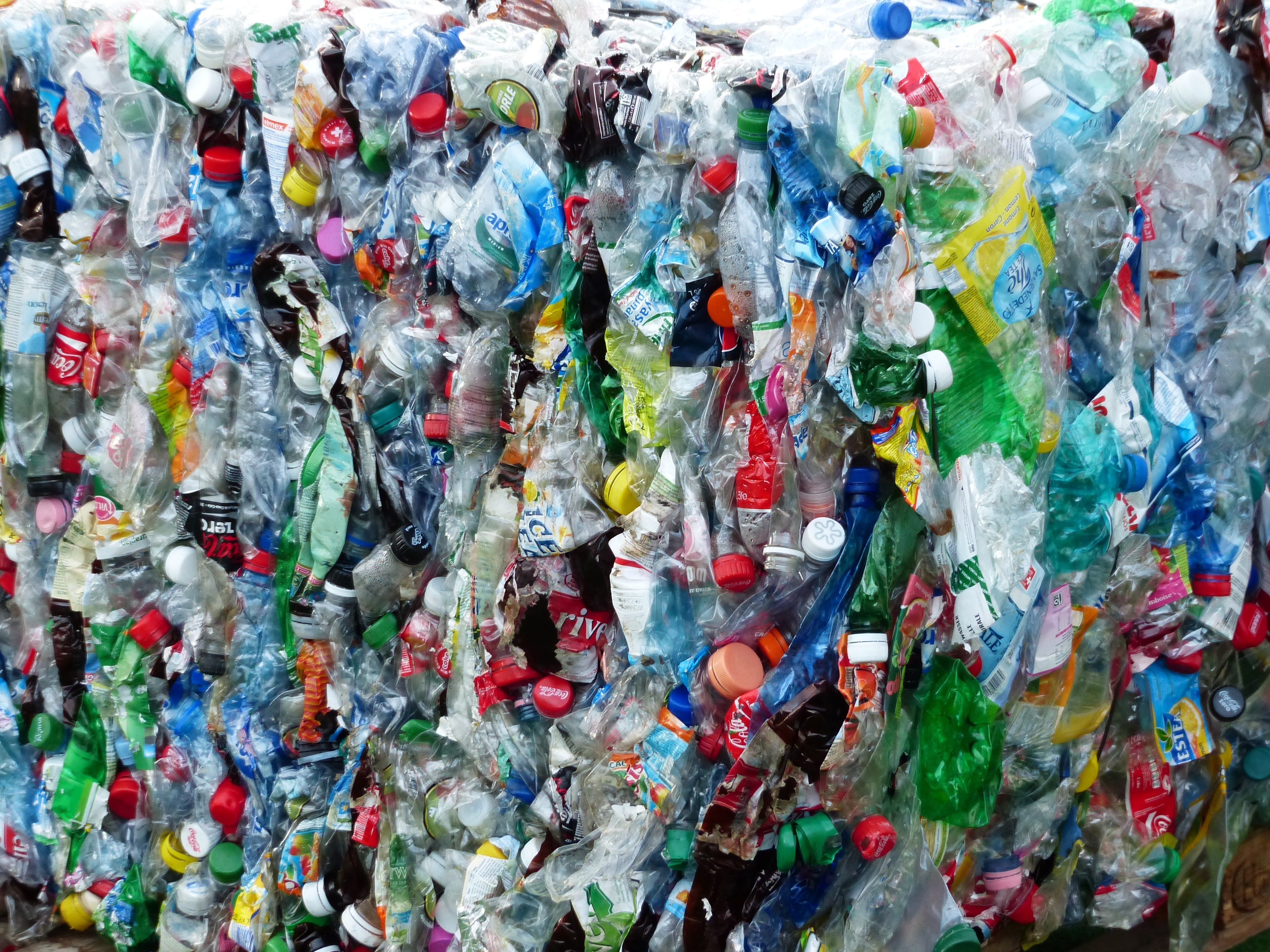
COP27’s sponsorship choice is total trash
The Egyptian government wasted their chance to set an example for the action that is so urgently needed from governments and businesses by choosing the world’s largest plastic polluter, Coca-Cola, as a sponsor for COP27. They should reverse that decision now.
On the 7th of November 2022, governments will gather for critical climate talks at COP27, with the stated aim of addressing the climate crisis with bold and rapid collective action. The announcement that Coca-Cola, the world’s biggest corporate plastic polluter, will sponsor the event raises serious questions about whether COP27 will be another exercise in greenwashing and delay, instead of the serious climate action we so urgently need.
Coca-Cola’s record on plastic pollution is infamous. They have been the world’s biggest plastic polluting company for the last four years in a row, producing a staggering 120 billion plastic bottles a year, 200,000 every minute. It’s difficult to visualise this amount of plastic, but one way is to look at pictures of the beaches around the world blighted by wave after wave of plastic pollution. Coca-Cola’s staggering plastic production is suffocating every inch of our planet: plastics have been found at the peak of Mount Everest, at the deepest point in the ocean and even inside human placentas.
The vast scale of Coca-Cola’s plastic production doesn’t just create pollution, it increases demand for fossil fuels at a time when the world needs to be urgently transitioning away from them. Chemicals derived from fossil fuel production are used to make more than 99% of plastics and projections suggest that the plastic industry’s demand for fossil fuels will drive nearly half of oil demand growth by mid-century. Despite the imperative to scale down production, Coca-Cola’s total plastic use has actually increased by 8.1% to 3.2 million tonnes since 2019 as it continues to feed the world’s dependence on fossil fuels.
Coca-Cola has a history of making sustainability commitments and not keeping them, promising in 1990 to include 25% recycled material in its PET bottles. Today the figure is still only 10%. Meanwhile, Coca-Cola’s advertising and marketing budget, which has ballooned to $4.2 billion, enthusiastically promotes their very limited steps towards increasing the recyclable plastic content of their bottles. COP27 is the ultimate stage for them to present themselves as a sustainability leader whilst continuing to devastate our environment and wildlife with plastic pollution.
Plastics are not even the full story, as human rights may also be at risk. From Haiti to Indonesia and around the globe, Coca-Cola has been repeatedly accused of human rights abuses from rights violations and poor working conditions to intimidation and murder. For any vision of climate justice to be achieved at COP27, there must be no doubt that all the sponsors involved have a proven track record of protecting human rights across their supply chains.
Sadly, the announcement of Coca-Cola as a sponsor is no surprise. COP hosts have a history of choosing big corporate sponsors responsible for high levels of emissions, plastic production and environmental destruction. Unilever, 2021’s third biggest plastic polluting company, were declared sponsors of COP26 despite being plastic polluters and long standing producers of ‘conflict palm oil’ - palm oil produced through destructive deforestation and the exploitation of workers and Indigenous peoples.
In total, COP26’s 11 sponsors generated a staggering £260 billion in revenue in 2020 and emitted 375 million tonnes of carbon - more than the entire United Kingdom in 2021. COP26 sponsorships were said to have been worth about £250m to the organisers, demonstrating a clear conflict of interest.
Sponsorship is also a symbol of who does and doesn’t gain access to the restricted areas where meetings between important decision-makers take place. While activists from the global South, experiencing the full force of the climate crisis struggle to raise funds to attend the conference, big corporations are able to pay their way in and promote our on-going addiction to fossil fuels to politicians who profess to be committed to weaning the world off them.
This is a fundamental issue of justice. We are calling on the Egyptian government to end this hypocrisy and remove Coca-Cola as a sponsor. People from vulnerable countries on the front lines of the climate crisis are suffering catastrophic losses from floods, droughts and fires whilst the companies causing the crisis are being given even more power. COP27 should be in service of the urgent needs of people on the front lines of the climate crisis, not serial plastic polluters. You can take a stand by joining our Plastic-Free COP campaign and going plastic-free for the entire COP27 fortnight to let Coca-Cola know that you won’t buy their greenwash, ever.
Instead of placating plastic polluters, COP27 talks should be rigidly focused on urgent action in three key areas: loss and damage, mitigation and climate justice. Rich countries must deliver on the $100bn pledged to address loss and damage in 2009 and set a higher post-2025 climate finance goal. Ambitious global mitigation action must ban new fossil fuel projects, phase out fossil fuel subsidies immediately and end all international agreements that protect fossil fuel profits ahead of people and planet. COP27 must buck the trend of previous COPs and ensure that frontline communities have a true leadership role in decision making to ensure human rights and justice are at the centre of climate action.
To ensure COP27 delegates act on these crucial issues, we held The People’s COP27 to amplify demands from vulnerable communities around the world for urgent climate action. From the event, we collated their demands into the ‘People’s COP Manifesto’ - 10 key points world leaders must address to ensure all climate action that comes from COP27 works for people and the planet. The manifesto will be shared with decision-makers at COP27, allowing marginalised voices to have real influence over the policies that will decide their futures. You can read and sign the manifesto today and support this action plan to ensure a safer, more sustainable future for us all.
SIGN UP FOR OUR EMAILS AND STAY UP TO DATE WITH EJF

